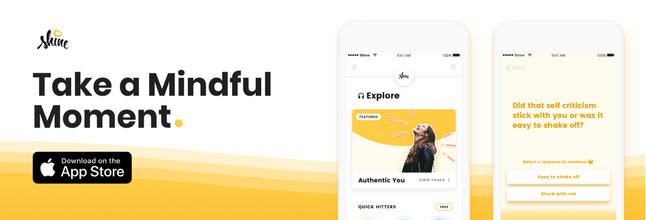How a Dash of Mindfulness Can Help You Get More Done
When life gets busy, the last thing on the top of your to-do list is probably “take time to get mindful”—I know it is for me. When I’m truly busy, any pause in my hustle (besides, of course, grabbing a new snack) seems like a waste of time.
But perhaps this is something that’ll ring true with the ambitious busy-bees of the world: mindfulness can help you be more productive.
That’s right—taking time to reframe the way you look at your work and daily practices can change the way you work. The reason: Being attentive and aware of your actions and intentions gives way to real focus that helps us get things done.
When insurance company Aetna prioritized mindfulness in its employee perks (think: meditation and yoga programs), the company saw big improvements in productivity, according to the New York Times. When team members participated in at least one class, they added 62 minutes of productivity to their week, which they figured out to be a gain of about $3,000 per employee per year. Plus: Employees that participated saw a 28 percent reduction in their stress levels. Talk about big numbers stemming from taking time to just be.
Making time for mindfulness might not seem like a priority, but taking a moment to pay attention to your mindset can actually help that to-do pile disappear into the finished pile. And I’m not talking about the kind of mindfulness practice that requires you to sit still and focus on your breath for a half hour, but rather the kind of active mindfulness that you can practice every day while staying attentive to your schedule.
Here, three key ways mindfulness is the productive secret you’ve been looking for:
It Helps Us Make Smarter Decisions

The average adult makes 35,000 decisions every day. Making decisions about work, your schedule, and getting tasks done effectively has a large impact on how much we’re able to take on. Do you spend more time on your email inbox, or the upcoming project? Do you put in extra work in the morning, or later at night when you’re comfortable at home? There’s so many small daily choices that perhaps we’re not even aware we’re actively making. And mindfulness can help us handle that mental and emotional load.
A study published in Frontiers of Neuroscience compared the decisions of experienced Buddhist meditators (#teammindful) against those of a controlled group. After observing the way the meditators’ brains activated while making decisions, the study wrote that the mindful meditators “activate a different network of brain areas compared with controls enabling them to uncouple negative emotional reactions from their behavior.” Basically: When we get mindful, we can see how our negative emotions affect our decisions and make better decisions.
Being mindful helps us separate our emotions from our behavior, which in the end can help us make more logical choices. So when presented with a decision, ask yourself: What am I feeling? What emotional attachments do I have to this decision? Check in with your feelings to sort fears and worries from the info actually worth considering when you're making a choice.
It Helps Us Focus

When we’re aware and intentional with our actions, the ability to focus on our work is much easier. Being mindful about the present means our brains aren’t clouded with the gossip overheard in the elevator or the anxiety for the upcoming dinner with the in-laws.
Psychology professor Marsha Linehan shared with Dummies an easy five-minute meditation to improve focus. To begin, she asks you to sit on a park bench or a public place, every day, for five minutes. If you commute via bus or train, this should be especially easy for you.
Next, Linehan asks you to practice looking ahead as people walk by or move around you for five minutes. Don’t necessarily look at the people and let judgements or thoughts fill your head, but rather just look out and accept the changing landscape for what it is.
The exercise is a helpful way to hit “refresh” on all that mental chatter. After doing this practice for a few days, use the cleared head space to focus on the tasks that really need your energy, whether that’s helping your kids with homework after school or getting all of the laundry finally washed.
It Keeps All Systems Up and Running

Whether you’re a student during finals week or in charge of a work presentation that has been months in the making, ignoring the needs of your body can lead to illness when you need to perform your best.
To combat the oncoming colds, it’s important to eat right, get plenty of sleep and, of course, stay mindful. When participants in one study underwent eight-week training programs in mindfulness training, researchers found that the mindful meditation training made changes in brain and immune function in positive ways.
Of course, mindfulness isn’t a one-stop cure, but if you’re starting to feel burnt out, take the time to prioritize mindfulness. Shine’s new iOS app has an interactive seven-day challenge specifically focused on burnout—it only requires five minutes a day, and it can help you recharge if you feel like you’re running on empty. The app will ask you how you’re feeling and serve up a personalized meditation. Or, if you’re stressed, overwhelmed, or need a bit of help to get the mindfulness practice started, Shine has other tracks for that as well. There’s even another seven-day challenge dedicated specifically to bettering your productivity—through mindfulness, of course.
Because, after all, nobody can reach their end goal on an empty tank.
Want more tips on how to get productive? Try the 7-day Get Productive challenge in Shine's new iOS app.

Read next: The Mindful Way to Ultimate Productivity
Shine is supported by members like you. When you buy through links on our site, we may earn an affiliate commission. See our affiliate disclosure for more info.

